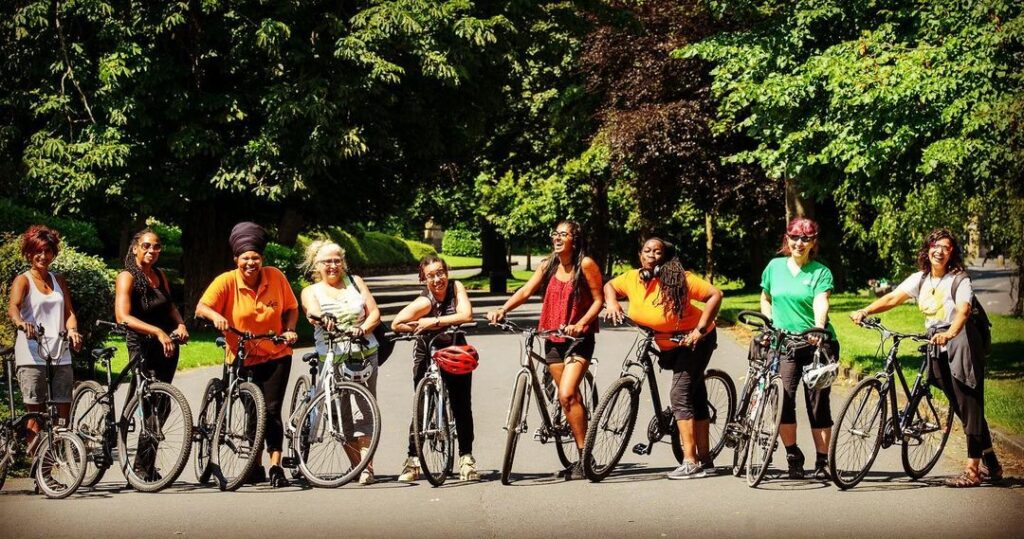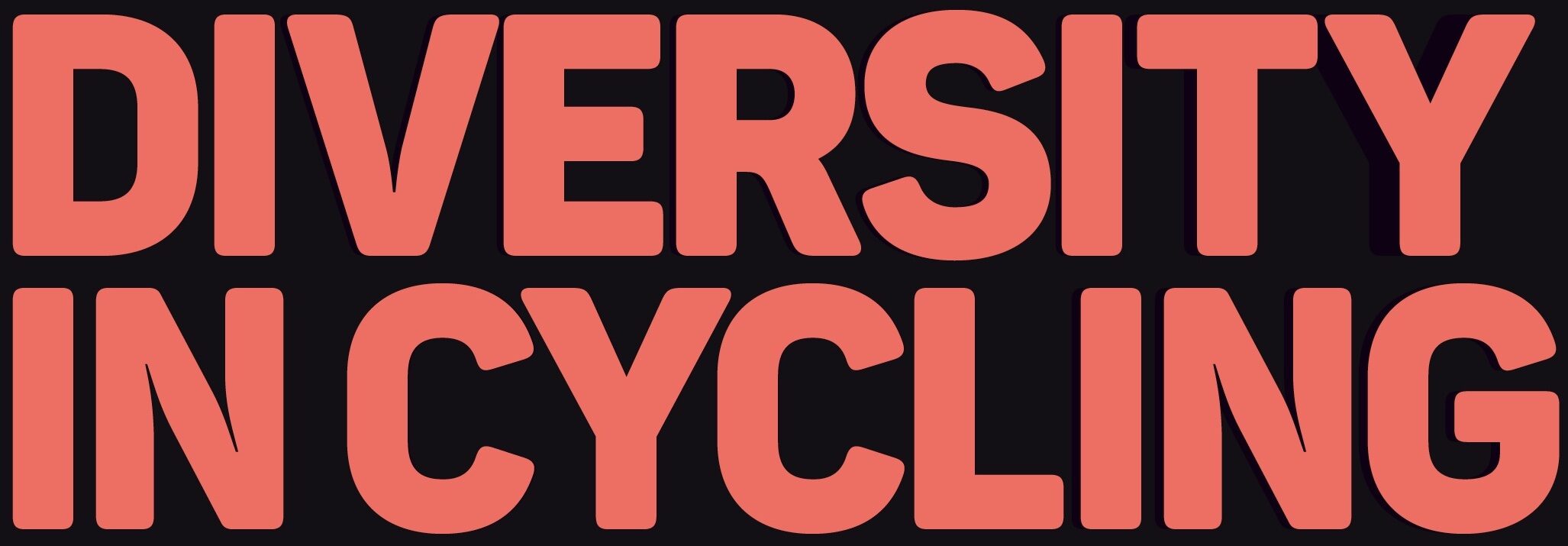Hop On is a not-for-profit social enterprise based in Bradford founded by three Muslim women, Shahida Kishver, Najma Khan, and myself. We are all qualified life coaches, cycling coaches, and ride leaders. We take a body and mind approach to cycling.
There are plenty of barriers to cycling for Muslim women. These barriers include home and family responsibilities, and religious commitments; days are filled with routines to serve the family, from managing the school run to preparing their children to go to mosque for two hours after school; the demands multiply for those who also hold down a job.
There is little realisation that cycling can be a better way to get from A to B, not only for time but also for headspace and the health benefits of cycling. Muslim women may not understand that cycling can help improve health and fitness. They may feel guilty about taking time to care for themselves, but by staying active, they become more conscious of what they eat and drink and create healthier habits without realising.
If the desire to ride is there, the next barrier is affordability, especially for those on very low incomes. Muslim women are also distanced from cycling due to a lack of culturally accessible facilities. This includes low levels of bicycle ownership, limited places to store a bike, and issues around having to transport a bike to a location to ride if commuting is an issue. Some local cycling groups enable women to borrow a bike to access cycle training, but bicycle storage units are often the target of theft, which I know all too well.
Many women don’t ride as some husbands would not like their wives to cycle because of what the community would say. This perception is slowly changing, but it is still there. I have worked with many women who love to ride with our groups, but the moment I suggest starting their own cycling group in their local area, they freeze at the thought of what the local elders would think. Creating more groups and clubs that are culturally appropriate will help get more Muslim women to ride bikes.
Once they have made that journey towards riding a bike confidently, the next barrier is personal safety and traffic. Muslim women often do not feel safe riding or commuting alone because of negative attention from (male) car drivers who do not seem to be able to comprehend the notion of a Muslim woman riding a bike.
So, what is the way forward?
Role models are key to raising awareness and encouraging the community to be more active. Hop On has succeeded in getting over 3,000 members of the local community cycling with a by women for women approach appealing to women across all backgrounds. Cycling in a controlled group is usually the best way forward for Muslim women as they feel safer, which builds confidence. Family sessions encourage children to ride while promoting a better relationship with their parents by spending quality time with each other while staying active. Hopefully, this encourages more respect for cyclists too.
As the barriers and motivations to cycling are very personal, there is no ‘one size fits all’ approach to encouraging cycling even within a specific ethnic group. The only way to achieve greater cycling participation is to work with local communities and for them to be involved in the design and running of the projects that suit their needs, rather than a group
delivering what they think they need. Hop On projects are born from the community. We listen to their needs and wants and design training based on that. Once that journey starts,
we encourage and inspire them to keep setting bigger goals. Hop On is now run by women who first came along to learn to ride.
Groups like Hop On need support to help us grow. I sometimes wonder about big funders and local authorities that make a lot of noise about sports being more diverse; are they just paying lip service? Are they doing it to be seen to be doing the right thing, or are they truly committing to it from a place of knowing why it should be a priority? I want to see everyone uniting and working together. In a city like Bradford, we can be a force to be reckoned with to transform our communities, where Muslim women riding bikes, wherever and whenever they please, becomes a regular thing. Let’s hope one day that can be achieved.

Picture: HopOn Bradford, courtesy of Joolze Diamond Photography
